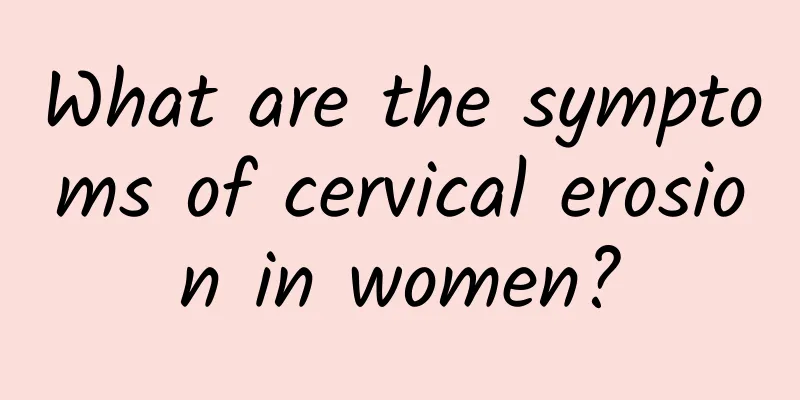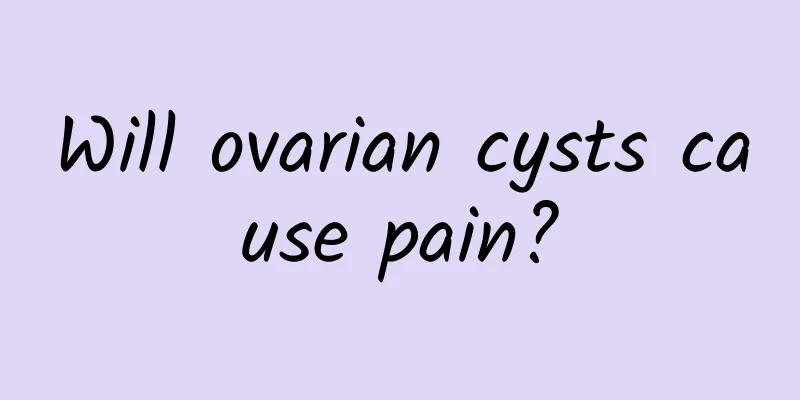How to deal with irregular menstruation in women? What are the causes of irregular menstruation after curettage?

|
Normal menstruation is an important sign of the health of mature women. Many female friends will experience irregular menstruation. There are many reasons for irregular menstruation. So what is the cause of irregular menstruation after curettage? How to treat it? Doctors say: It is common for women to miss their periods after curettage. You should go to the hospital for a checkup in time. Here are some specific tips for you: 1. The menstruation of women is the result of the interaction between the cerebral cortex, hypothalamus, pituitary gland, ovary and uterus, and is regulated by neuroendocrine. When people are in situations of excessive tension, fear, sadness, excessive fatigue, or surgery, the neuroendocrine system can inhibit the functions of the hypothalamus, pituitary gland, ovary, and uterus, thus causing menstrual disorders. 2. After curettage, endocrine changes occur, especially the sudden drop in chorionic gonadotropin levels, which makes the ovaries unable to respond normally to the gonadotropin from the anterior pituitary gland, causing amenorrhea. 3. During the painless curettage operation, the basal layer of the endometrium is damaged more, and the functional layer of the endometrium is damaged. The endometrium cannot regenerate, which causes the patient to have long-term amenorrhea. 4. Performing curettage multiple times in a short period of time will seriously damage the basal layer of the endometrium, causing irregular menstruation and other gynecological diseases. 5. Endometritis after curettage can cause adhesions in the uterine cavity due to inflammation, which can also lead to scanty menstruation or amenorrhea. Most of these patients have fever, lower abdominal pain and other accompanying symptoms after surgery. In fact, for most female patients, irregular menstruation after curettage is very common. Some will return to normal after a period of time, while others need treatment. So how should it be treated? 1. You may have slight lower abdominal discomfort, pain or a small amount of vaginal bleeding on the day after curettage. If the abdominal pain is severe or the vaginal bleeding is heavy or lasts for a long time, you should seek medical attention in time; 2. Within 2 weeks after surgery, you should rest in bed appropriately, eat more nutritious food, and avoid heavy physical labor; 3. Pay attention to the cleanliness of the perineum. Do not take a bath or have sexual intercourse when vaginal bleeding has not stopped. 4. Pay attention to contraception to avoid pregnancy again. |
>>: Does irregular menstruation affect pregnancy? What are the causes of irregular menstruation?
Recommend
What should patients pay attention to in their diet after uterine fibroid surgery?
What should patients pay attention to in their di...
What are the reasons for irregular menstruation in women? How can women regulate and improve irregular menstruation?
Traditional Chinese medicine believes that there ...
Women with ovarian dysfunction can eat these foods to regulate
In modern society, women are no longer a vulnerab...
Brie Larson's evil curves in Captain Marvel! 3 fitness tips to create a perky butt and a beautiful back
The hot topic of discussion recently has to be Ma...
Can I fill cavities during menstruation?
Tooth decay can be filled during menstruation, bu...
The care of vulvar leukoplakia should focus on emotional regulation
The occurrence of vulvar leukoplakia has endanger...
What are the hazards of cervicitis in women? How should cervicitis in women be treated?
Gynecological diseases are relatively common in l...
If you want to avoid cervical hypertrophy, you must beware of its causes
Nowadays, more and more women may suffer from cer...
What symptoms will women experience when they suffer from adnexitis?
When it comes to adnexitis, female friends can de...
What are the symptoms of uterine fibroids and ovarian cysts?
In fact, the harm to patients with uterine fibroi...
What to eat during the second trimester of pregnancy can cause miscarriage What to eat during the second trimester of pregnancy can cause miscarriage
During pregnancy, pregnant women must pay attenti...
Four main tests for cervical hypertrophy
Clinically, the best way to check for cervical hy...
What should you pay attention to after abortion? Pay attention to these 5 points
Pregnancy is a very important thing for us women....
What's wrong with abnormal vaginal discharge?
What's wrong with abnormal vaginal discharge?...
Why do unmarried women also suffer from adnexitis?
It is generally believed that women will not suff...









